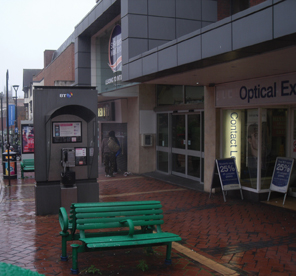Soliciting, whether for obtaining casual labour or prostitutes. Dog fouling or dogs in public off their leads. Ball games, drug use. Smoking or hanging around in parks, beside children’s play areas, or in public and open spaces generally. Urinating in public. Aggressive begging. These are some of the crimes or nuisances that bother people, and businesses if on or beside their premises; some of things are ancient, some modern.
Featured in the January 2018 print issue of Professional Security were the POP (problem-oriented policing) awards, by the Met Police. Finalists covered anti-social behaviour on business high streets, or by social landlord tenants; unauthorised traveller encampments; and car cruising on business estate roads (less-used than public roads, and hence attractive to the cruisers, but dangerous to the business tenants). Some of those finalists found the injunctions and orders of the Anti-Social Behaviour Crime and Policing Act 2014 useful, as a way of tackling crimes short of taking people to court.
Here we review one case of how the Public Spaces Protection Order (PSPO) under that 2014 Act is being used around England and Wales.
Under PSPO covering Derby city centre from December 8, police have new powers to deal with anti-social behaviour; namely drinking alcohol on the street, taking drugs, urinating or begging.
Derbyshire Police Insp Lauren Woods, who is in charge of policing in Derby city centre, said: “We are committed to playing our part in keeping Derby city centre a safe and pleasant place for people to visit, work and live. The Safer Neighbourhood team works hard to ensure that those behaving in a criminal or anti-social manner are dealt with in an appropriate manner, either through the judicial system or supported by our partners to address the issues that lay at the cause of their behaviour. We welcome the introduction of the PSPO as it gives us and those we work with, more powers to deal with some of the anti-social behaviour that affect those using the city centre.”
A public consultation by Derby City Council, run through November 2017, showed overwhelming public support as well as support from local businesses, police report. Critics of the orders complain that they can criminalise borderline or harmless actions – the Derby PSPO for instance includes using a skateboard, scooter, or bicycle in a public place, ‘in a manner which causes a nuisance or annoyance’; or loitering, likely to be anti-social. Critics also ask what difference orders make as laws already cover begging, urinating in public and illegal drugs, for instance; Derby City Council councillor Asaf Afzal, Cabinet Member for Neighbourhoods and Public Protection, admitted that the PSPO for the city centre is ‘an additional tool’. He said: “We want to support our vibrant city centre whilst setting clear boundaries for unacceptable behaviours and this order will help us do that.”
Hardyal Dhindsa, the Labour Police and Crime Commissioner for Derbyshire, welcomed the PSPO, as has the two business improvement districts in the city. Martin Langsdale, chair of the Cathedral Quarter, and Helen Wathall, chair of St Peters Quarter, said: “It is clear that we all share the common goal to tackle crime and anti-social behaviour – particularly when fuelled by alcohol and substance misuse. PSPOs will further support the work of Derbyshire Police, Derby City Council – both of whom are the designated agencies with the delegated enforcement powers – and of our own Ranger teams who are an additional and welcome uniformed presence on the streets to improve the visitor experience to both BID areas.”
A PSPO, under section 59 of the 2014 Act, means restrictions and requirements can be placed on an area where activities have or are likely to have a detrimental effect on the quality of life of local people. Breach of a PSPO is a criminal offence and can be punished by a fixed penalty notice (for over-18s), or prosecution. A PSPO can last for up to three years before it has to be renewed by a council.
Picture by Mark Rowe, Derby, July 2017









